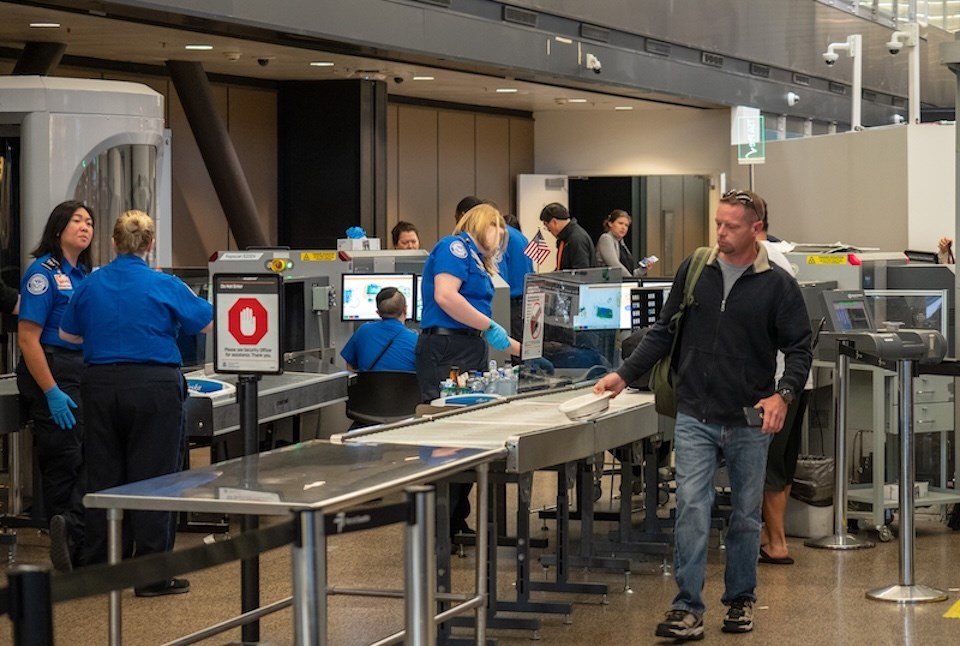The Canadian government is warning travellers about stricter protocols at the U.S. border and changes to entry requirements.
"We have updated sections of our travel advice for the United States with information on screening at the border, carrying proof of status, and instructions on visa applications," the government said in a post on X, formerly Twitter.
The Government of Canada reminds travellers that it cannot intervene if they do not meet U.S. entry or exit requirements. Individual border agents often have "significant discretion in making those determinations" and may "strictly enforce entry requirements." Travellers must comply with authorities; if they are denied entry, they could be detained while awaiting deportation.
The United States travel advisory was updated on Friday, April 4, to reflect new entry and exit requirements. It comes amid a wave of detentions at the U.S. border, including travellers arriving from across the globe.
What are some things I should expect at the Canada-U.S. border?
Travellers should expect scrutiny at ports of entry, including their electronic devices. U.S. border agents can search them and don't need to provide a reason when requesting a password to open your device (laptop, cell phone, tablet, etc).
If travellers refuse, authorities may seize their devices. The border agent could also delay your travel or deny entry if you are not a U.S. citizen.
The government advises you to put your device in airplane mode to "ensure remote files don’t get downloaded accidentally."
Travellers must also have all their travel information ready for authorities, including the address they will stay at in the United States. They may also be asked to show the following:
- evidence of residential, employment or educational ties to Canada
- proof that the trip is for a legitimate purpose and is of a reasonable length
- proof of sufficient funds to cover your stay
What do some Canadians need to do before travelling to the U.S.?
The new U.S. Alien Registration Requirement also comes into effect on April 11, which affects any non-citizens planning extended stays of a month or more.
President Donald Trump issued the Protecting the American People Against Invasion executive order to the Department of Homeland Security on Jan. 20 to ensure non-citizens register with the U.S. government before entering the country. The order notes that failure to comply is "treated as a civil and criminal enforcement priority."
The U.S. Immigration and Nationality Act (INA) requires all non-citizens 14 years of age and up to apply for registration and fingerprinting for stays over 30 days. Parents of children under 14 must also ensure the registration of youth.
U.S. Citizenship and Immigration Services (USCIS) states on its requirements website that "Canadian visitors who entered the United States at land ports of entry and were not issued evidence of registration" are not registered.
To register, travellers must first create a USCIS online account. USCIS provides help to do this on its How to Create a USCIS Online Account page.
Travellers applying for U.S. visas
Canadians are typically permitted to stay in the U.S. for six months visa-free, but there are some exceptions. Regardless, any visitor must declare their intended duration of stay upon entry into the United States.
In February 2025, U.S. authorities changed some of the instructions on how to fill out visa applications. If you do need a visa, follow the current instructions carefully when filling out your application.
Registration is not necessary for U.S. trips shorter than 30 days
Canadians do not need to register for trips to the U.S. under 30 days. However, they should monitor Canada's latest travel advice for any changes.
Global Affairs Canada advises travellers always to register trips they take online before they leave so that the Canadian government can contact them in an emergency, regardless of trip length. Additionally, registration allows the government to alert them about important changes or updates to the Travel Advice and Advisories for the country they are in.
Canadians can also follow Global Affairs Canada on X (formerly Twitter) @TravelGoC and @
Find more information about exciting destinations in B.C. and across the globe, as well as travel deals and tips, by signing up for V.I.A.'s weekly travel newsletter The Wanderer. Since travel deals can sell out, find out the day they are posted by signing up for our daily Travel Deals newsletter.
Want to learn more about a specific destination or have a travel concern or idea you would like V.I.A. to write about? Email us at [email protected]. Send us stories about recent holidays that you've been on, or if you have any tips you think our readers should know about.



